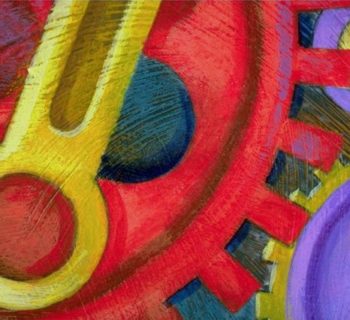 Earlier this week the UK Jisc launched the Jisc NUS roadmap (pdf) designed to support students, course representatives, and union and guild representatives to work with their institution on improving student digital experiences.
Earlier this week the UK Jisc launched the Jisc NUS roadmap (pdf) designed to support students, course representatives, and union and guild representatives to work with their institution on improving student digital experiences.
Jisc say "Informed by extensive research into learners’ experiences and expectations of technology, the roadmap has been updated following over 77,500 student responses to Jisc’s digital experience insights survey, gathered over three years.
The roadmap - which has been updated from a benchmarking tool Jisc previously developed with the National Union of Students (NUS) and The Student Engagement Partnership (TSEP) - is now freely available online. It enables institutions to identify gaps in their digital provision, while allowing students to compare their digital experiences to others’."
The roadmap focuses on 'Good Practice Principles' which has four levels of progression: First steps, Developing, Developed and Outstanding. Whilst obviously focused on wider aspects of the student experience, one section covers teachers, with the good practice principle being that "Teaching staff are confident users of digital technologies and media." Students were asked "What one thing would improve the quality of your digital learning and teaching?" They were further asked to "rate your digital learning and teaching overall" and in a more open question "When digital technologies are used on my course…"
First steps were:
- Training available for teaching staff in all core systems such as the virtual learning environment, assessment systems and lecture capture
- E-learning specialist staff are available to support teaching staff
- All teaching staff can use inclass digital technologies and audio visual equipment
- All teaching staff can upload content to the VLE and use an online submission and grading system
Developing were:
- A technology enhanced learning (TEL) or e-learning strategy with goals for teaching staff development
- There is a growing cohort of teaching staff with digital expertise, supported by elearning specialists
- All teaching staff can use the specialist academic/professional technologies of their subject area
- Workshops are available to support the development of digital teaching skills
Developed were:
- All teaching staff can design digital activities suitable to their subject area and student needs
- Local e-learning staff or staff digital champions support digital approaches at the course or subject level
- Staff share digital teaching ‘know how’ via one or more communities of practice
- Dedicated funding and staff support for digital innovation projects
Developed were:
- Teaching staff have time allocated to develop, practice and evaluate digital approaches
- Specific rewards and career pathways for digital teaching expertise and innovation
- Teachers and students work in partnership to develop new digital approaches
- There are excellent digital teaching and learning projects that have been recognised outside the organisation








